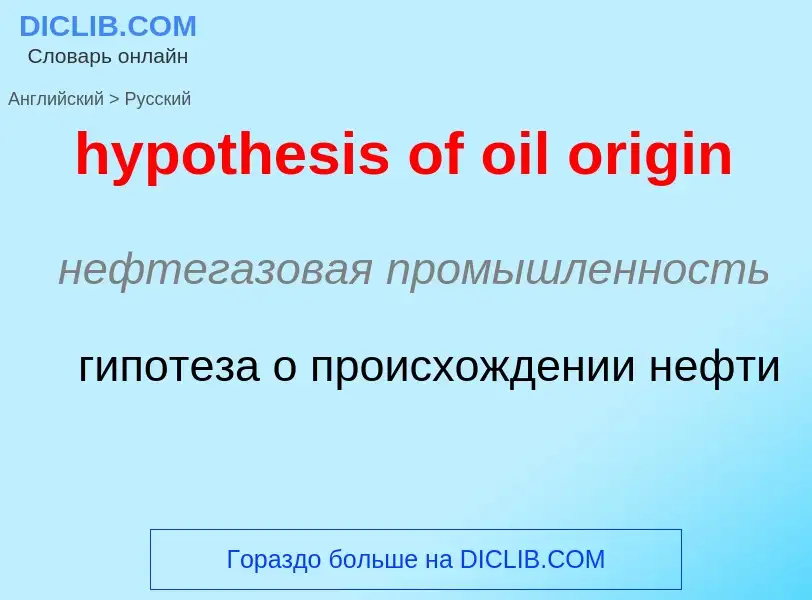Vertaling en analyse van woorden door kunstmatige intelligentie ChatGPT
Op deze pagina kunt u een gedetailleerde analyse krijgen van een woord of zin, geproduceerd met behulp van de beste kunstmatige intelligentietechnologie tot nu toe:
- hoe het woord wordt gebruikt
- gebruiksfrequentie
- het wordt vaker gebruikt in mondelinge of schriftelijke toespraken
- opties voor woordvertaling
- Gebruiksvoorbeelden (meerdere zinnen met vertaling)
- etymologie
hypothesis of oil origin - vertaling naar russisch
нефтегазовая промышленность
гипотеза о происхождении нефти
общая лексика
центр происхождения
центр возникновения
общая лексика
репликатор
начало репликации
Wikipedia
The Frigg and Freyja common origin hypothesis holds that the Old Norse goddesses Frigg and Freyja descend from a common Proto-Germanic figure, as suggested by the numerous similarities found between the two deities. Scholar Stephan Grundy comments that "the problem of whether Frigg or Freyja may have been a single goddess originally is a difficult one, made more so by the scantiness of pre-Viking Age references to Germanic goddesses, and the diverse quality of the sources. The best that can be done is to survey the arguments for and against their identity, and to see how well each can be supported."
The names Freyja and Vanir (the group of gods to which Freyja belongs) are not attested outside of Scandinavia, as opposed to the name of the goddess Frigg, who is mentioned as Frīg in Old English and as Frīja in Old High German, all stemming from Proto-Germanic *Frijjō. Although there is no similar evidence for the existence of a common Germanic goddess from which Freyja descends, some scholars have argued that this may simply be due to the scarcity of records outside of the North Germanic tradition.



![Genome of ''[[human herpesvirus-6]]'', a member of the [[Herpesviridae]] family. The origin of replication is labeled as "OOR." Genome of ''[[human herpesvirus-6]]'', a member of the [[Herpesviridae]] family. The origin of replication is labeled as "OOR."](https://commons.wikimedia.org/wiki/Special:FilePath/Hhv6 genome2.png?width=200)
